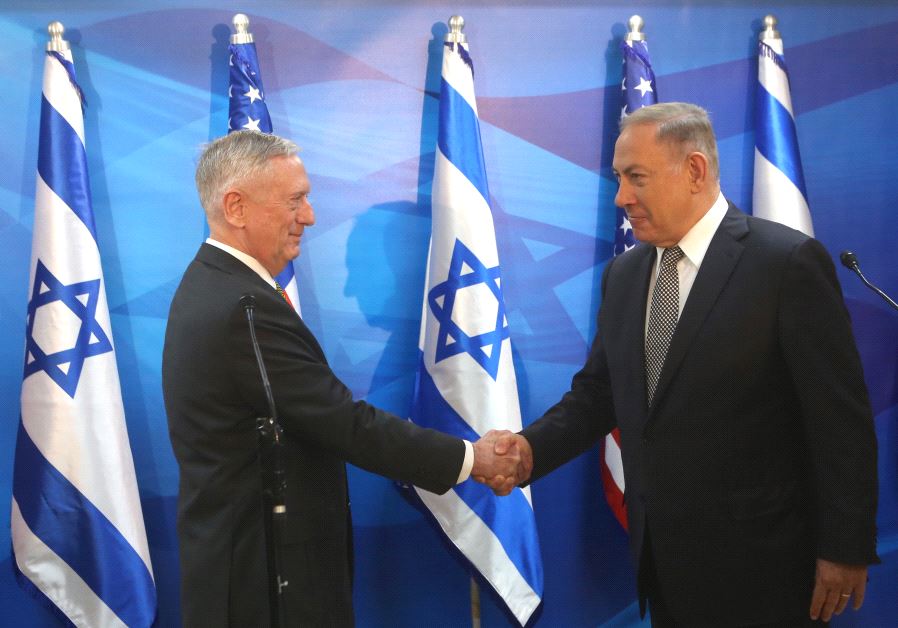Netanyahu welcomes Trump's strategic change of US foreign policy
US Defense Secretary Mattis: 'If good people don't band together then bad people can do a lot of damage'
 Prime Minister Benjamin Netanyahu and US Defense Secretary James Mattis(photo credit: MARC ISRAEL SELLEM)Updated:
Prime Minister Benjamin Netanyahu and US Defense Secretary James Mattis(photo credit: MARC ISRAEL SELLEM)Updated: